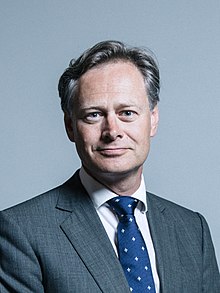The speech made by Matthew Offord, the Conservative MP for Hendon, in the House of Commons on 18 March 2021.
I start by highlighting my chairmanship of the all-party parliamentary group on Sri Lanka. Sri Lanka’s relationship with the rest of the world has been strongly shaped since the end of the conflict by allegations that the army committed war crimes and crimes against humanity during the final phase of the civil war.
A UN panel of experts reported in April 2011 that there were credible allegations of those crimes by both Government and Tamil Tiger forces. It remains my opinion that both sides were at fault. However, I regret the Government of Sri Lanka’s decision to withdraw support for UNHRC resolution 30/1 and note that previous domestic initiatives have failed to deliver meaningful accountability. I therefore urge the Sri Lankan Government to engage in a process that has the confidence of all on the island.
But it would be remiss to state that the current Sri Lankan Government have failed to act. The Office on Missing Persons and the Office for Reparations are to be retained and strengthened, so that communities may build trust. It will be good to see reform of the Prevention of Terrorism Act and progress on the release of political prisoners. We must act as a critical friend to the country. We need to help strengthen democratic institutions, and we must trust Sri Lanka to develop its own judicial and non-judicial mechanisms.
Since the end of the conflict, reconciliation has occurred between Sinhala, Tamil and Muslim communities. People are able to live wherever they wish. They benefit from state resources, such as free education and health services. Private land that was occupied by the military has been returned, former conflict areas have been de-mined with assistance from the United Kingdom, and more than 12,000 ex-LTTE— Liberation Tigers of Tamil Eelam—cadres have been rehabilitated. There is a greater connectivity throughout the island and globally, and all of this has transformed the business sector and the lives of everyone in the country.
But we should remember that resolution and accountability are not a panacea for addressing underlying tensions. Questions about how to address the legacy of the Sri Lankan conflict must be answered: what kind of justice is attainable? How should the victims of violations be treated in the process? What might punishment look like, and how can justice play a constructive role in forging a lasting peace?
Draft legislation for a truth and reconciliation commission had been prepared under the previous Sri Lankan Government, and that could be revisited. If it gains universal support in Sri Lanka, truth seeking among all stakeholders, including the diaspora in many of our communities and constituencies, could make a lasting difference. When these issues have been resolved, a sustainable and acceptable peace will endure. Given the good will between our two countries, I ask the Minister: how can the UK help to facilitate a TRC mechanism that is unique to the needs of Sri Lanka?
